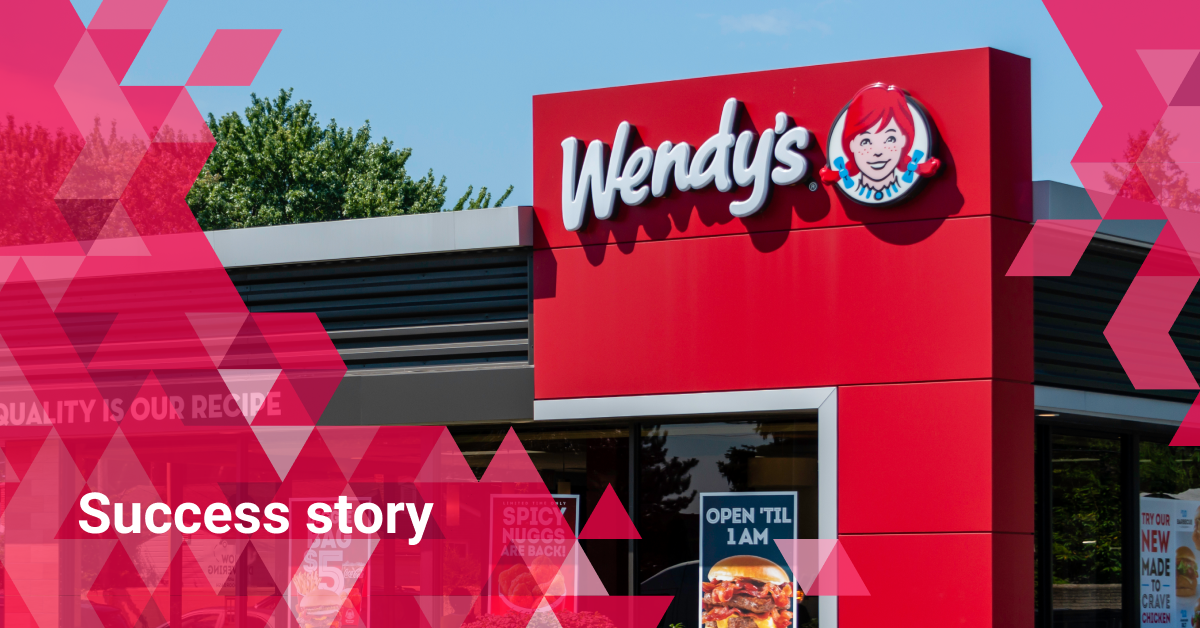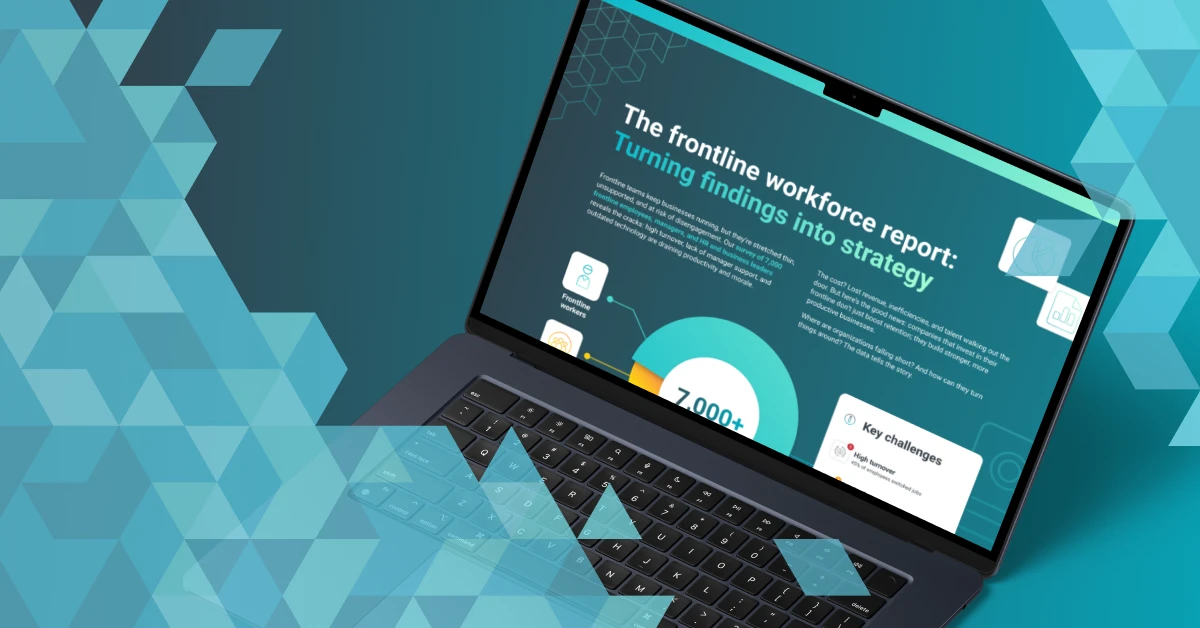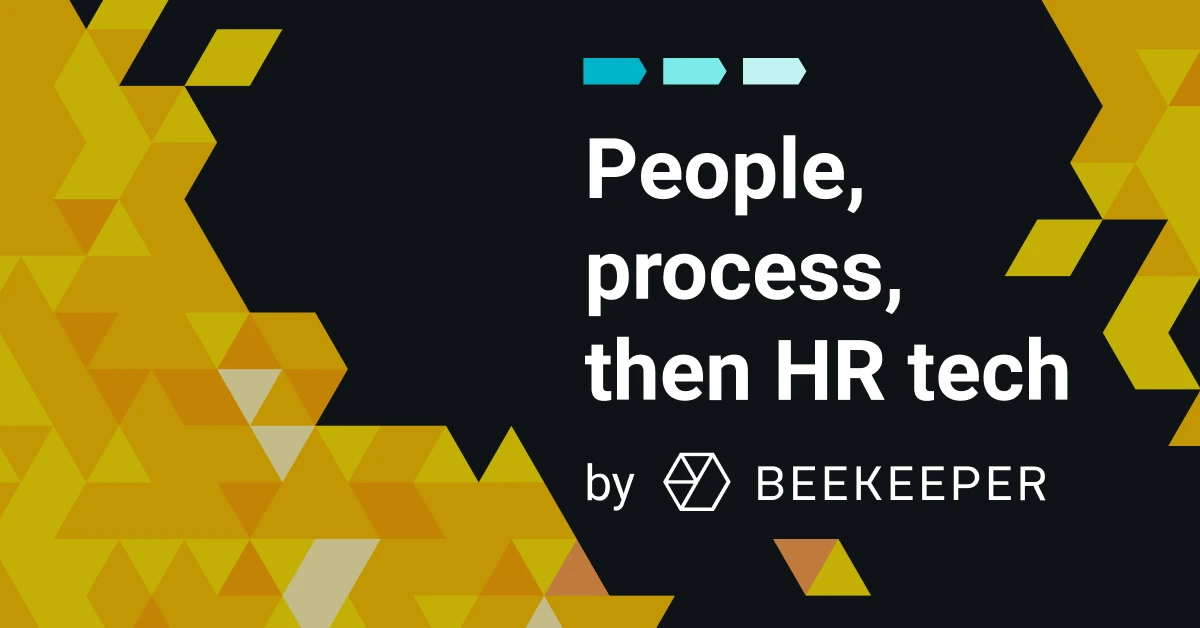Frontline Success Recap: Flexible Learning and Development for the Frontline

As any frontline organization knows, ongoing development is a critical element of maintaining a thriving, engaged workforce. It’s a topic Beekeeper dove into during the 2022 Frontline Success Summit.
Fonda Chang, a Senior Partner Alliances Manager at Beekeeper led a riveting conversation about Flexible Learning and Development for the Frontline with two panelists very familiar with this topic:
- Jacob Waern, Founder and CEO of eduMe
- Corina Forman, HR Director at APC, the largest independent parcel delivery network in the United Kingdom
This discussion outlined key takeaways on how leaders can deliver the content frontline workers want and need.
The Need for Mobile-First Frontline Learning and Development
Jacob offered eye-opening statistics from eduMe’s recent study of frontline workers:
- Three-quarters of frontline workers said they don’t get the skills training they need to perform better, but more than 80% of workers want that information
- 50% of frontline workers feel no loyalty to their employers
- 80% of companies feel they’re asking workers for feedback, but 63% said they’re not doing this
There’s a huge disconnect between leadership and frontline workers, which is having a major impact on productivity and engagement. According to Jacob, “This is partly because companies are using no tech solution or legacy tech.”
Corina Forman has experienced this growing need for frontline training firsthand.
“I’ve worked in HR for almost 30 years and I’ve seen huge changes in employees’ expectations of the workplace and their willingness to move on if there are expectations not met.”
But the lack of frontline digitization impacts the ability to deliver the training workers want. As Corina noted, “conventional digital learning and engagements are just not well suited to the needs of workers in this sector who are then at risk of being excluded from the learning and development opportunities that are available to their desk-based colleagues.”
Both Corina and Jacob agreed that companies have the power to change this trend by investing in mobile-first solutions to bridge the digital divide. And APC is doing that by using Beekeeper and eduMe to reach their vast mobile workforce.
The Importance of Onboarding
“Onboarding is a very important moment in the employee lifecycle,” Jacob noted. “As a company, you’re setting your expectations of yourself and how you differentiate yourself as an employer.” He stressed the point with the fact that 20% of new hires will leave within just 45 days if onboarding is inadequate.
Companies need to design an onboarding strategy that gives frontline workers want out of the process.
“From our survey, 72% said it should have been faster. 90% said the experience could be improved.”
– Jacob Waern, Founder and CEO
Jacob’s offered his top tips for getting onboarding right:
- Strip things back to the basics and communicate what people need to succeed on day one to avoid information overload. Add additional knowledge over time
- Use engaging formats like videos that show people how to do things themselves
- Reduce digital friction by providing the right learning tools
And if companies get it right? 70% of frontline workers will stay three or more years.
Create Content that Makes a Difference
APC has developed a strong learning strategy for its frontline workforce. “For us, business data metrics are the main driver of all of our training content.” Corina discussed how the company creates content that resonates.
“We review all of our KPIs on a daily basis: productivity, absence rates, accident trends, and customer service performance metrics,” she said. “If we spot any kind of emerging trend then we can develop eduMe content very quickly to address what we’re seeing.” And Corina’s team at APC uses eduMe to deliver short bursts of content at regular intervals to maintain momentum and keep workers engaged.
Taking this data-driven approach to content creation has positively impacted those KPIs.
Over the past six months, the company’s night warehouse staff retention has jumped from 74% to 79%, productivity has increased two points, and there’s been a 20% decrease in safety incidents.
These results all support Jacob’s initial point: that companies have the power to change those negative statistics simply by making investments in frontline learning. “Over a third of surveyed workers would feel more connected to a company that offered them additional information on how to do their job better.”
Safety and compliance training best practices
Refine the learner experience
- Reach them where they are, on devices they use
- Drip feed content continuously
- Focus on care
- Incentives and rewards
Mobilize internal teams
- Engage and get buy-in from stakeholders
- Set KPIs
- Look to the news for topics
- Analyze the data
Watch the full discussion on Flexible Learning and Development for the Frontline now.

About the author
Beekeeper
Interested in learning more?
Join 1200+ companies transforming frontline work with Beekeeper. Start your journey today to make every task easier, every team stronger, and every shift smoother.






